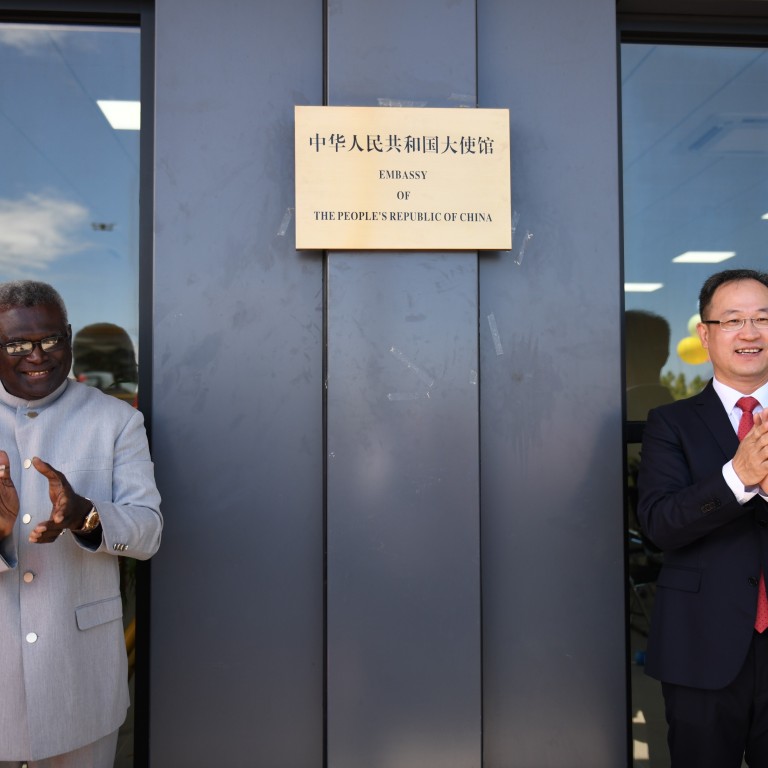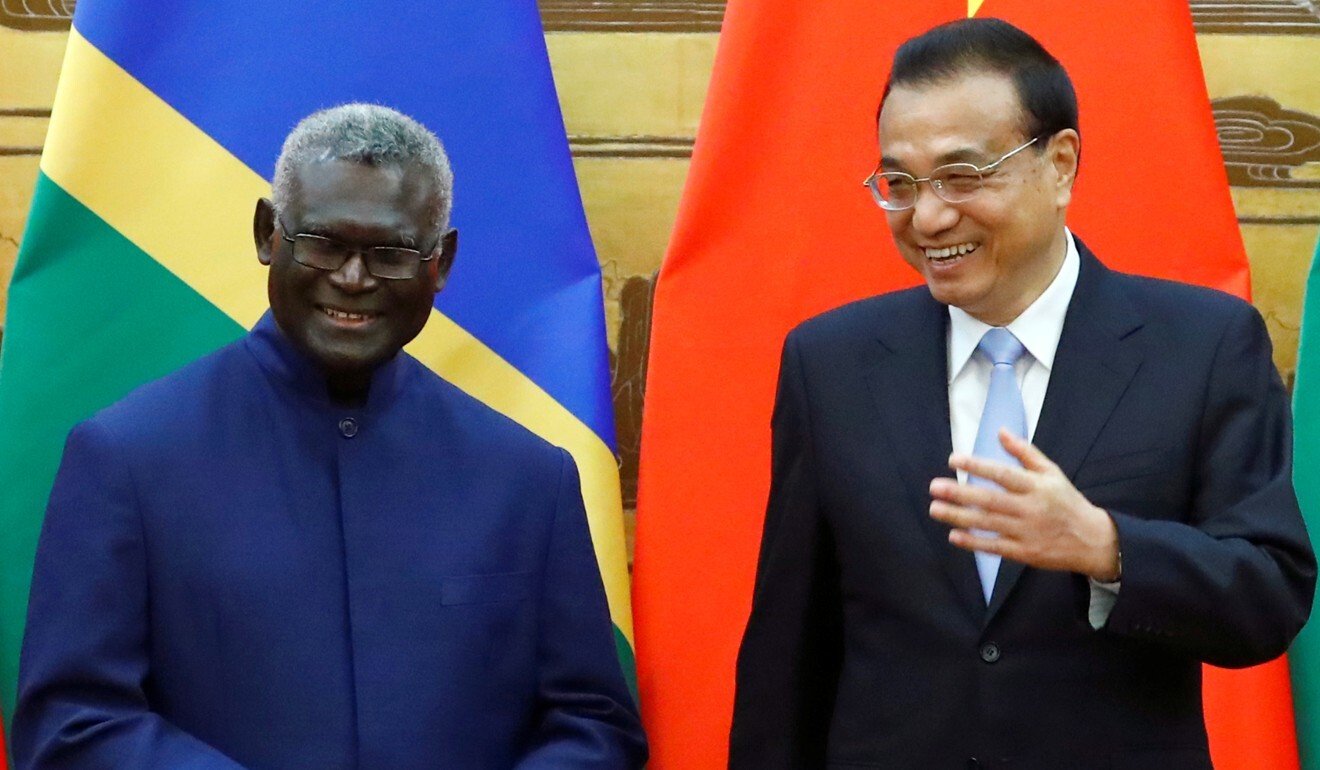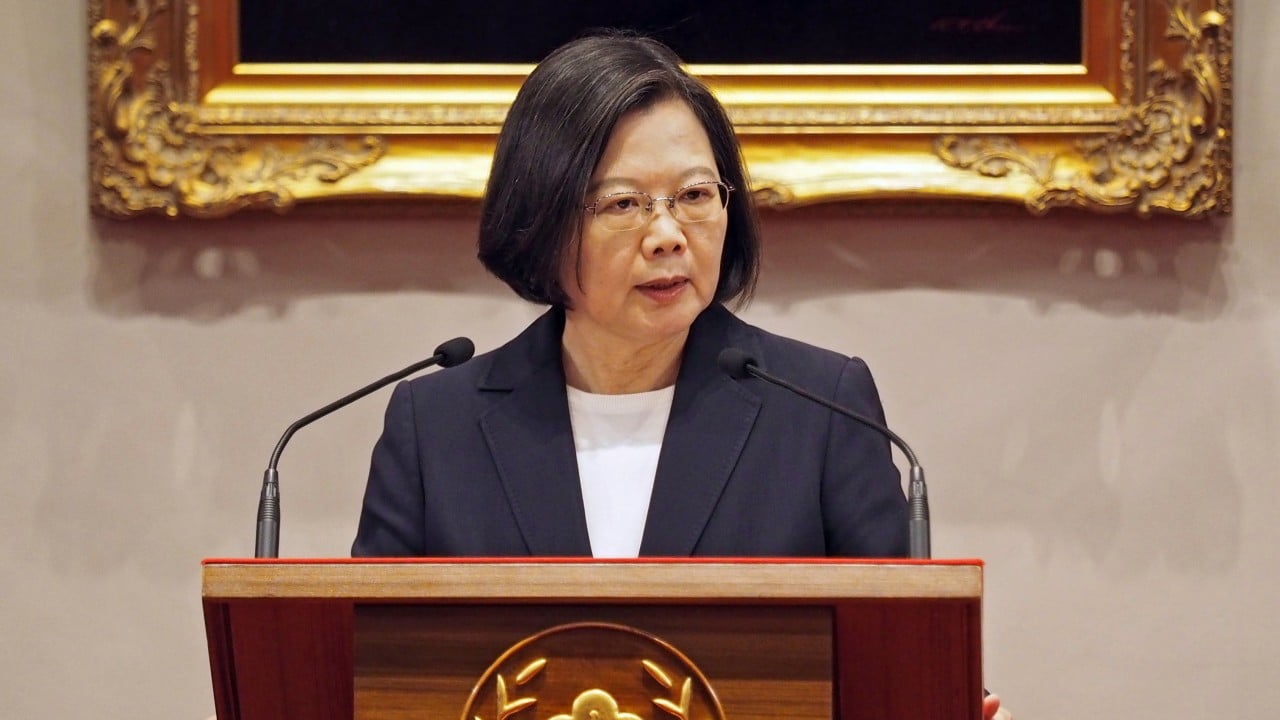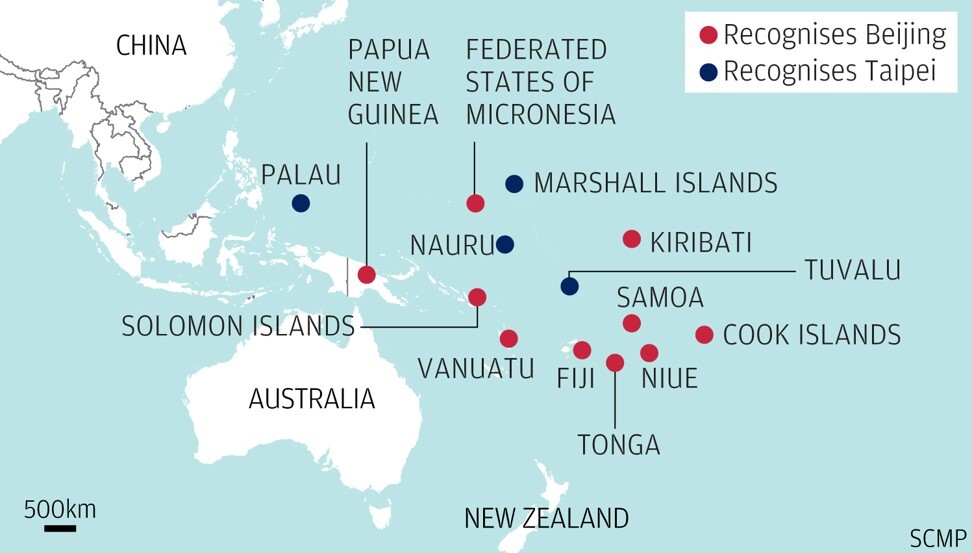
As China opens embassy in Solomon Islands, a bitter feud over values fuels separatist bid
- The Pacific Island nation’s diplomatic switch from Taipei to Beijing has aggravated existing divisions between central and local authorities
- Its largest province of Malaita is seeking independence, revealing internal politics foreign powers must navigate in competition for influence
Solomon Islands Prime Minister Manasseh Sogavare said the diplomatic switch to Beijing had been the “right thing to do” and put the archipelago of about 690,000 people on the “right side of history”.
Li Ming, the new Chinese ambassador, said Beijing’s establishment of ties with the country, which lies about 1,800km (1,118 miles) east of Papua New Guinea, conformed to “the trend of the times and benefits the two peoples”.
“Malaita independence has always been simmering but the national government’s perceived disregard of Malaita’s, and to a greater extent the nation’s, voice on the switch would have played a big part in pushing Malaita towards looking more seriously at independence,” said Peter Kenilorea Jnr, one of the nation’s opposition MPs.
Solomon Islands switches recognition to Beijing – but its largest province still favours Taiwan
Malaita’s Premier Daniel Suidani, who has vowed to oppose any loans or investment from China, has accused government MPs of trying to bribe him into accepting the switch. When that failed, he claimed ex-militants from the country’s 1998–2003 ethnic conflict were sent to the province for the purposes of intimidation.
Tensions came to a head earlier this month over a chartered flight from Guangzhou. Although billed as a repatriation flight, only 21 of the 104 passengers on board were Solomon Islanders. The rest were Chinese embassy staff and workers involved in the construction of venues for the 2023 Pacific Games, according to a passenger list obtained by Radio New Zealand. Despite assurances from the central government in Honiara that all passengers would have to test negative for Covid-19 and then undergo quarantines, the flight sparked outrage in the Solomon Islands, which has so far had no cases of the virus.
Two days before the flight touched down on September 3, Suidani promised to give people in his province a chance to vote on whether they wanted to be part of a country whose “leadership is becoming dictatorial”.
“People are of the view that the government is more supportive of Chinese,” said Celsus Talifilu, an adviser to Suidani.
“Not only that but I think there is a current perception amongst many people in the Solomons that the government has been bought by China, although it is very difficult to ascertain any evidence.”
If the Solomon Islands’ government tries to quell this independence move … we may witness a proxy war between the Chinese and the Americans in this corner of the South Pacific
Talifilu said the referendum would be a survey of people’s views and could lead to the introduction of arrangements that, while falling short of full-fledged independence, would see the province “independently manage some of its affairs”.
“It depends on how the negotiations happen,” he said, adding that he expected the vote to take place by next month. “From the Malaita perspective, it’s not going to be an easy one.”
Central authorities in Honiara have declared Malaita’s proposed referendum illegal and warned the provincial authorities that they could be taken to court. The office of Prime Minister Sogavare did not respond to a request for comment before publication.


01:20
Taiwan severs ties with Solomon Islands
Michael Salini, a businessman and commentator based on Tulagi, said the islands’ national government needed to meet with locals in Malaita and other provincial areas to explain the country’s ties with Beijing, as he said many locals could probably be persuaded of the relationship’s benefits if genuine investment and development were the result.
“Some people even go as far as thinking once the Chinese come in, they take over the country – they build a military base in the country. We don’t want those things,” Salini said.
“There is so much confusion and there is so much frustration going on.”

“These suspicions are due largely to people’s past experiences with China,” said Tarcisius Kabutaulaka, the Solomon Islands-born director of the Centre for Pacific Islands Studies at the University of Hawai’i at Manoa. “These have mostly been with Chinese citizens, entrepreneurs and companies. Most Solomon Islanders therefore view and understand China through these interactions. These have predominantly been negative with some Chinese entrepreneurs [seen] as taking businesses away from Solomon Islanders – crowding them out of these sectors.”
Chung Chien-peng, a professor at Lingnan University who has researched China’s engagement with Pacific Island nations, said the tensions in Malaiti could potentially fuel the building rivalry in the Pacific between Beijing and Washington.
US cancels Solomon Islands meeting after ‘disappointment’ at it switching ties
“If the Solomon Islands’ government tries to quell this independence move, if it is for real, we may witness a proxy war between the Chinese and the Americans in this corner of the South Pacific,” Chung said. “Although Papua New Guinea is bigger and more important to China, the Solomon Islands is also an anchor of Chinese economic and security influence in the South Pacific.”
Whether independence for Malaita is a realistic, feasible proposition is another issue entirely, however.
“Malaita Province is too interconnected with the rest of Solomon Islands to consider a bid for independence,” said Clive Moore, an emeritus professor at the University of Queensland whose published work focus on the Pacific nation. Describing the moves by the province as “posturing” and “playing politics”, he said that “not only is Malaita the most populous province but Malaitans make up more than half the citizens of Honiara, the capital city.”
Either way, the rumblings in Malaita are a lesson in the care that outside countries must take when seeking to make inroads in the Pacific, said Kenilorea Jnr, the opposition MP.
“I think it underscores the challenges that Beijing faces in winning over the hearts and minds of very independent and, with the added ethnic diversity, often stubborn Pacific peoples who are themselves adjusting to their own challenges of nation building,” he said.


